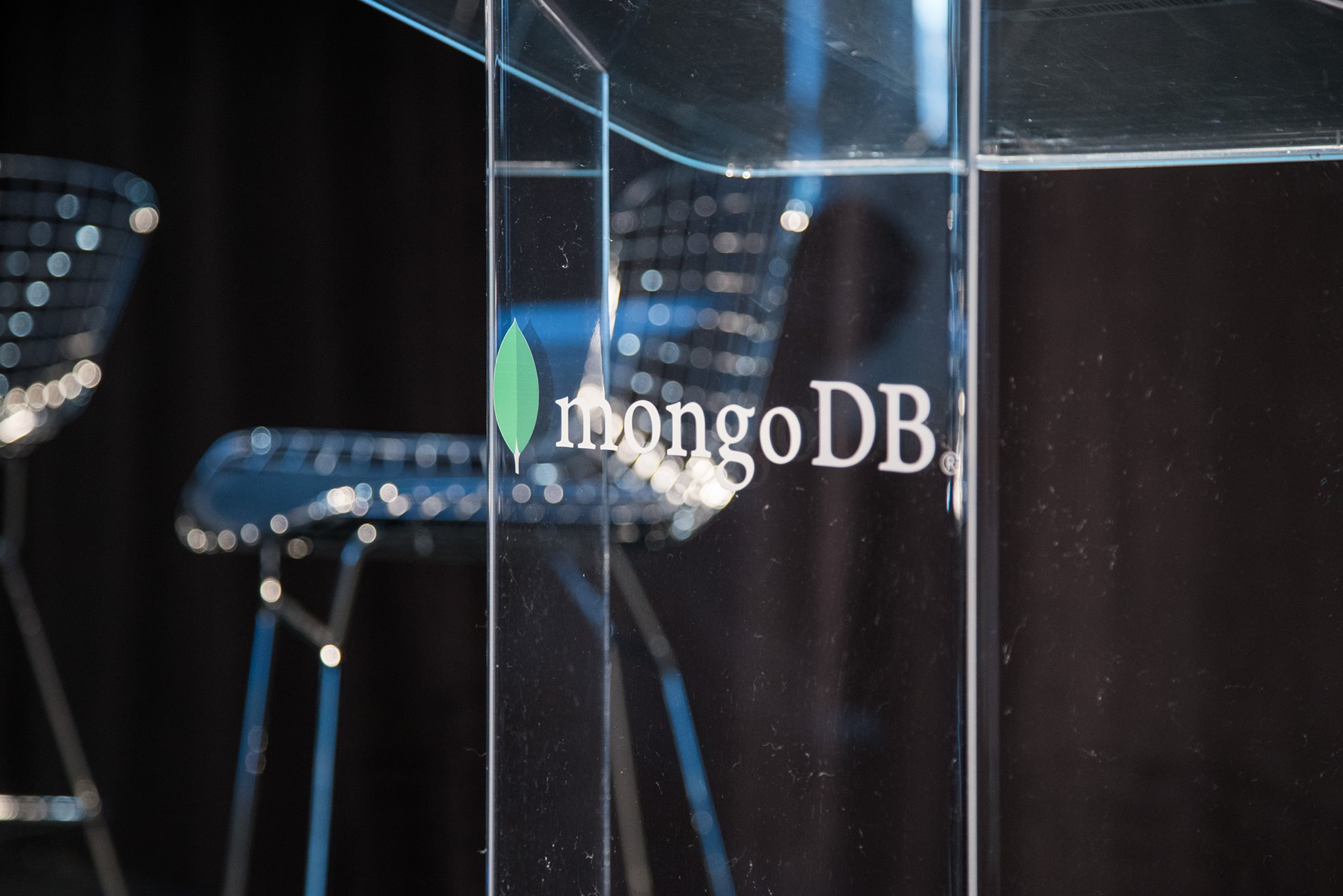 INFRA
INFRA
 INFRA
INFRA
 INFRA
INFRA
New York City-based database company MongoDB Inc. today formally announced its plans to launch an initial public offering.
MongoDB, which develops open-source database software including its namesake MongoDB NoSQL database, submitted its IPO plans on Thursday, confirming reports that emerged in August that it was planning to do so. Those reports came after the Wall Street Journal reported in May that the company had hired the Goldman Sachs and Morgan Stanley to act as underwriters.
MongoDB’s business model is based around selling sophisticated tools for the open-source software it develops. The idea is that companies begin using its basic software for free, then agree to pay a subscription for all of the paid add-ons MongoDB provides to ensure a better experience using that software. It’s a similar model to Hadoop big-data software provider Cloudera Inc., which also went public earlier this year.
The problem for MongoDB is that it’s still losing big money on that model. In its filing, the company provided detailed financial information for the first time, reporting that it lost $45.8 million loss on revenue of $68 million in the six-month period that ended in July. However, that loss was only a fraction of a million dollars more than the same period a year ago, when its revenue was just $45.1 million, demonstrating that the company’s losses relative to revenue are narrowing.
Whether the company can ever achieve a profit remains up in the air, however. Holger Mueller, principal analyst and vice president of Constellation Research Inc., said MongoDB has made all of the right moves so far, shifting from an open-source services model to more of a cloud-based, next-generation database player. But he questioned whether the company would be able to sustain the growth its shown over the last year.
“The IPO filing shows that management is confident in its ability to deliver growth for the foreseeable future,” Mueller said, who hasn’t heard of any short-term issues with MongoDB’s growth ambitions. “Then again, things are never easy and steady-state in enterprise software.”
The difficulty of making a profit in such a competitive market probably explains MongoDB’s decision to go public in the first place. After all, the company will need further capital to keep growing in hopes of turning a profit on the higher revenues at some point. To that end, MongoDB has indicated it’s looking to raise as much as $100 million from the IPO, though that figure could be a placeholder.
MongoDB’s move also appears to be well-timed, as 2017 has proven to be a livelier one for IPOs in general, coming after a much-publicized IPO drought the previous year.
“When you compare the tech IPO market over the last few years, 2017 has been a strong one for startups, and it is indicative of a larger shift in the industry, particularly with regards to cloud technology,” said Ramin Sayer, chief executive officer of Sumo Logic, a provider of log management and analytics services that partners with MongoDB. “Now more than ever, the shift to the cloud and industrywide adoption of other emerging technologies has created an opening for companies like MongoDB to move beyond legacy companies and databases and capitalize on the complex and evolving requirements of business applications.”
Indeed, related open-source companies are looking at MongoDB’s IPO hopefully. “MongoDB’s IPO further validates the story, not only around open-source technologies and their adoption by the enterprise but the vibrant commercial success of open source-focused businesses,” said Joe McCann, CEO of NodeSource, which makes a software development toolkit for the node.js programming language.
Still, despite Ramin’s optimistic view, MongoDB is taking a bit of a gamble as the results of IPOs this year have been fairly hit and miss, with companies such as Snap Inc. and Blue Apron struggling while the likes of Cloudera and MuleSoft Inc. have managed to stay above their IPO price.
It remains to be seen if investors will be willing to make a bet on MongoDB. In addition to the concerns over its profitability, MongoDB also faces incredibly stiff competition in what is a very crowded database service market. Rivals that offer their own NoSQL database alternatives include public cloud giants such as Amazon Web Services Inc. and Microsoft Azure, and then there’s Oracle Corp. with its legacy database offering, which MongoDB itself said is its biggest target.
“We believe Oracle is incredibly vulnerable because they’ve lost the developer’s heart and soul,” MongoDB Chief Executive Officer Dev Ittycheria said earlier this year.
The company was valued at $1.6 billion as of January 2015, according to data from PitchBook. Venture investors included Flybridge Capital, Sequoia Capital and Union Square Ventures.
Support our mission to keep content open and free by engaging with theCUBE community. Join theCUBE’s Alumni Trust Network, where technology leaders connect, share intelligence and create opportunities.
Founded by tech visionaries John Furrier and Dave Vellante, SiliconANGLE Media has built a dynamic ecosystem of industry-leading digital media brands that reach 15+ million elite tech professionals. Our new proprietary theCUBE AI Video Cloud is breaking ground in audience interaction, leveraging theCUBEai.com neural network to help technology companies make data-driven decisions and stay at the forefront of industry conversations.